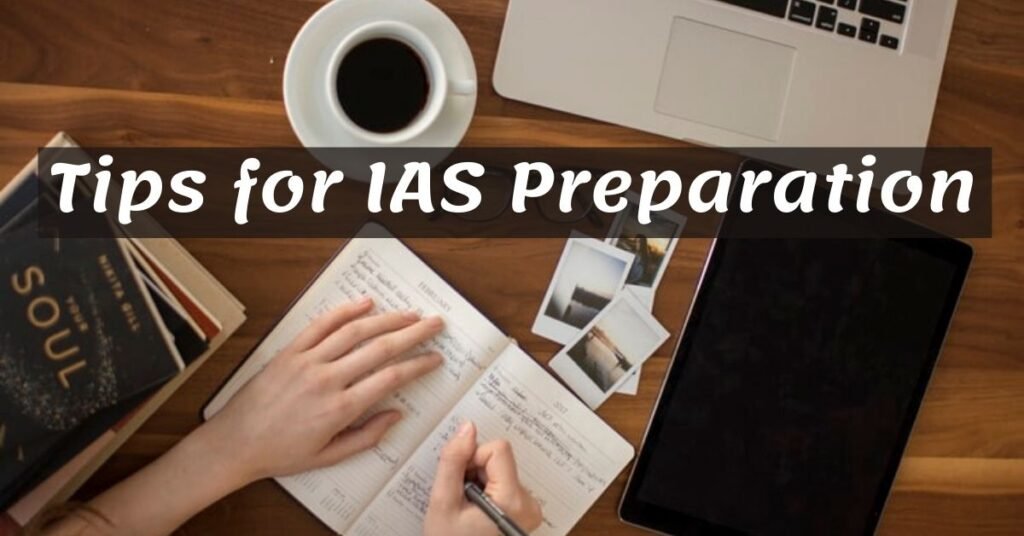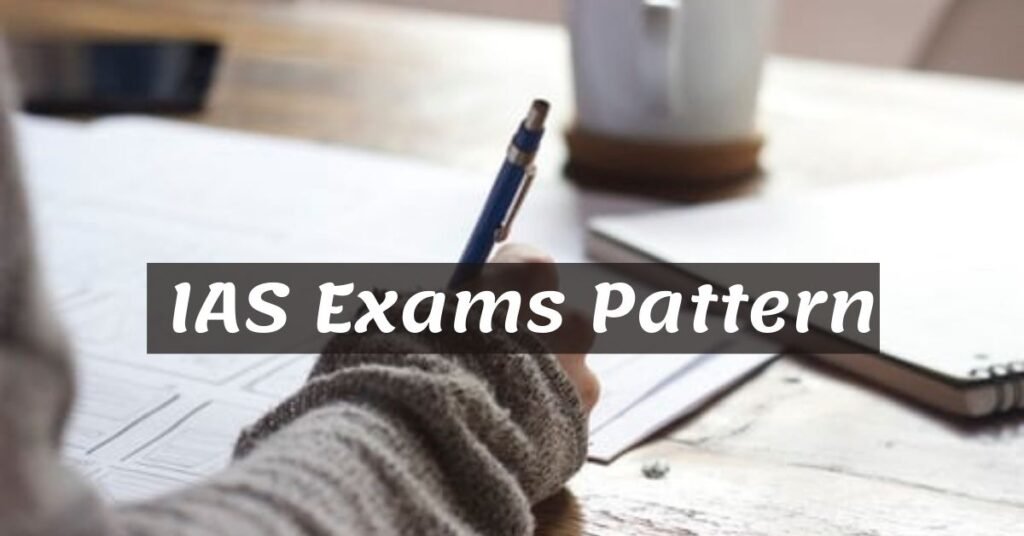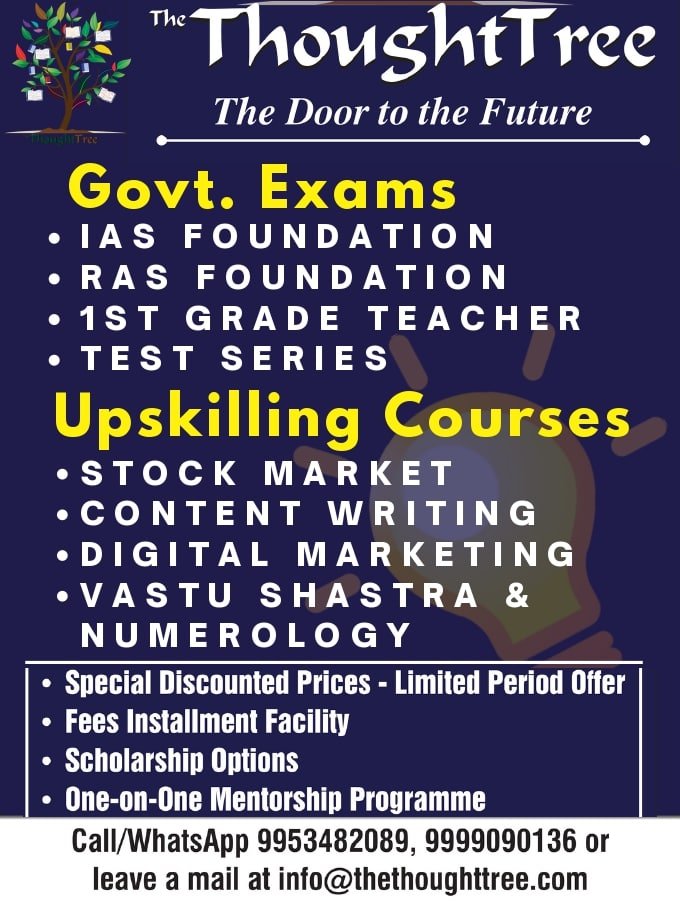Have you completed your 12th standard? Do you want to become an IAS officer? Are you from a science/commerce/art background, and what to crack civil services? This article on “How to Become an IAS Officer After 12th” will answer all your questions in the best possible way.
Indian administrative service IAS is one of the most valued and best civil jobs in India. Becoming an IAS officer is desired by many Youths and professionals because this job is very much promising. However, to become an IAS officer is not a cup of tea. It takes a lot of hard work and determination.
This exam is amongst the most difficult exams to crack. The main reasons for this exam to be so hard and difficult to crack are
1. The aspirants from all over the country compete in this exam which takes this exam to a different level in terms of competition.
2. The exam syllabus is too lengthy, and one needs to study in a precise and efficient manner to crack the exam.
3. Time is an important factor; aspirants are given only a limited amount of time to cover this vast syllabus of the exam.
So you have to be serious, which means you cannot take these exams leniently and have to put every drop of your sweat and blood for IAS Exam Preparation.
Preparations for the Exams
As I said earlier, this exam attracts many youths and professionals, but there are certain criteria for appearing in these exams. One of which is, the candidate applying must be a degree holder in any subject and from any reputed college.
Now some students have a question – How to Become an IAS Officer After 12th?
Students should know that they can’t appear for the IAS exams right after completing their 12th board exams.
After completing their 12th standard, the students should decide whether they are focused and determined to become an IAS officer.
After deciding to become an IAS officer, the student can now be called an IAS aspirant and start preparing for the exams.
How to Prepare for IAS After 12th– Tips for IAS Preparation

1. The students studying for the IAS exams should take up graduation courses that involve subjects like history and politics.
– Subjects like history, politics, economics, sociology, and geography are most important in the IAS exams.
2. Make a proper timetable for preparing for the IAS exam and allot maximum time for studying.
– This will help you work according to time and with proper discipline. You can also add time for relaxing, which does not mean maintaining a streak on Snapchat.
– However, you can play sports like football, cricket, badminton or any sports which require physical strength that will keep you fit and healthy.
– You can’t keep studying for the whole day; you’re not a robot or a psychopath to do that, so try relaxing through these sports because “a healthy mind resides in a healthy body.”
3. While you are busy studying for the graduation exam, these subjects that you’ve selected would prove beneficial in building a good base and foundation for the IAS exam also.
– So get a grip on these subjects and make them your strength so that you also have enough time to focus on the other subjects.
Read More: How To Read Newspaper For UPSC
4. Keep studying public administration, world geography, and history even if you study these topics in your course.
– This subject has special importance in all three modes of conduct: prelims, mains, and interviews.
5. Keep revising basic math and science that you’ve been learning from 6th onwards up to class 12th.
– The basic maths and science will help you cover the syllabus of the prelims paper.
6. Even if you’ve enough time to appear for the paper, don’t waste your time unnecessarily.
– Keep practicing and revising the topics, and always keep in mind that all the syllabus is covered before appearing for the exams.
7. Read previous year’s question papers from time to time. These papers are very useful and have immense importance.
– These papers can also be helpful when you get bored. You can pick these papers from any year and start solving them and note down the answers.
8. Study like an IAS aspirant and not like a normal kid, bunking classes and goofing around with friends. If you have decided to be an IAS officer, you have to grow up from your brain.
– You need to understand the concepts and theories in a well-mannered and serious way. And maintain proper discipline while studying.
9. Make proper use of the college library, read old ncert books and study for the optional subjects from the books in the library.
– The library is also a beneficial resource as you can refer to many books based on UPSC preparations and books based on tips and preparation patterns for the IAS examination.
10. Read newspapers regularly, develop an interest in reading the daily newspaper. The newspaper is a good resource and can boost your preparations.
– The newspaper is also available in the college library. You can also read the newspaper at home before coming to college.
– The newspaper covers various aspects of society like the economy, local news, financial news, current developments in the country, etc.
11. Improve your abilities in communication and expressing your thoughts. And also try to improve your personality.
– A proper personality and posture attracts everyone and makes you glitter in the interview. All these things will help you to gather confidence for interview rounds later
12. Make notes; this thing is followed by almost all the toppers and IAS aspirants. Making notes help you in memorizing a particular topic and keep the information handy.
– So, you don’t need to keep searching for things while revising the topics. Making notes will also help you in keeping track of the syllabus covered so far.
13. Writing practice, This drill is usually done to improve your writing speed. The more you write, the more you can improve your writing speed.
– This drill will help you while writing the mains exam as it is a theory-based exam. You’ll have to write the exam as soon as possible without any mistakes and take special care of your writing.
14. Test series, take up some test series that will help you gain experience on how questions are asked in the exams.
– These test series are generally held online nowadays.
15. Join IAS coaching courses, for those finding some subjects and topics difficult, they should join these coachings.
– Coachings will guide you at every step of preparation with their well-experienced teaching faculties and through their study material.
These were some IAS preparation tips for students who want to know -How to Become an IAS Officer After 12th.
Paper Pattern for IAS Exams

As we all know, the IAS exam is conducted in three stages.
1. Prelims
2. Mains
3. Personal interview
Let’s dig a little deeper into these stages of the exam
IAS Preliminary Exam
This exam is objective-based or includes multiple-choice questions (MCQ)
This exam also has a negative marking scheme. On each wrong answer, ⅓ that is 0.66 mark, is deducted from the allocated marks.
There are two papers in the prelims exam
1. Paper 1 General Studies
This paper is merit-based and ranks your performance. There are a total of 100 questions, and you are given 2 hours to solve the paper.
Maximum marks for the paper – 200
2. Paper 2 General Studies (CSAT)
This exam is required for qualifying for the mains paper. There are a total of 80 questions, and you are given 2 hours to solve the paper.
Maximum marks for the paper – 200
IAS Mains Exam
After clearing the prelims, the candidates have to appear for the next exam called the mains exam.
Now, this exam is based on theory and essay writing and includes 9 papers.
1. Paper A Compulsory Indian Language
– Time duration 3 hours
– Total marks 300
2. Paper B English
– Time duration 3 hours
– Total marks 300
Both paper A and B are necessary for qualifying
3. Paper 1 Essay
– Time duration 3 Hours
– Total marks 250Marks
4. Paper-II General Studies I
– Time duration 3 Hours
– Total marks 250 Marks
Read More: UPSC Preparation Tips
5. Paper – III General Studies II
– Time duration 3 Hours
– Total marks 250 Marks
6. Paper –IV General Studies II
– Time duration 3 Hours
– Total marks 250 Marks
7. Paper – V General Studies IV
– Time duration 3 Hours
– Total marks 250 Marks
8. Paper – VI Optional Paper I
– Time duration 3 Hours
– Total marks 250 Marks
9. Paper – VII Optional Paper-II
– Time duration 3 hours
– Total marks 250 marks
These 7 papers decide the ranking of the candidate in the merit list and are also considered for the final rankings.
The total for all the 9 papers is 1750 marks.
IAS Personal Interview
The candidates clearing the mains exams and scoring above the prescribed cutoff are eligible for the next round of the exam, the interview round. This round decides whether you are capable of being a civil servant.
The UPSC appoints a special body to take interviews of qualified candidates. This is also a tough round. Candidates spend a lot of money and time preparing for the interview rounds.
The interview round carries 275 marks. You are asked about your hobbies, general knowledge and current affairs of the country. This interview round takes place in the UPSC Bhavan, New Delhi. You can join an IAS coaching for better guidance.
IAS Exam Eligibility Overview
The age limit should be 21 to 32 years.
But it varies from people of various categories.
The number of attempts also varies from people of various categories
1. General – 32 years and a maximum of 6 attempts
2. SC or ST – 37 years and unlimited attempt up to age limit
3. OBC – 35 years and a maximum of 9 attempts
4. Ex-Servicemen – 37 years and a maximum of 9 attempts
5. Disabled Defence Services Personnel – 35 years and a maximum of 9 attempts
6. A person with disabilities and from economically weaker sections –
42 years and a maximum of 9 attempts
These were some ias eligibility criteria for appearing in the IAS exams.
I hope you liked the article and found it informative enough to clear all your doubts on How to Become an IAS Officer After 12th?





